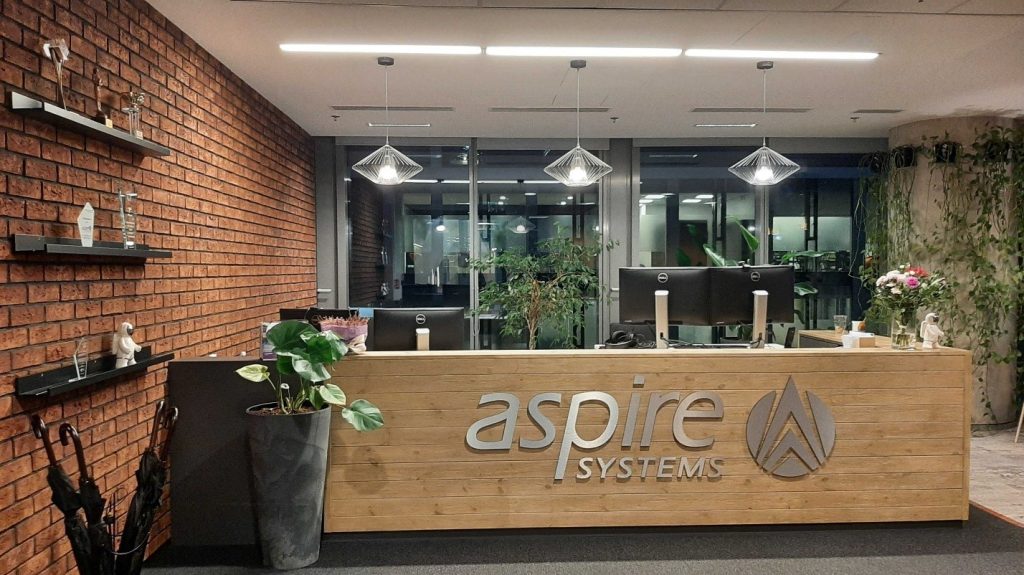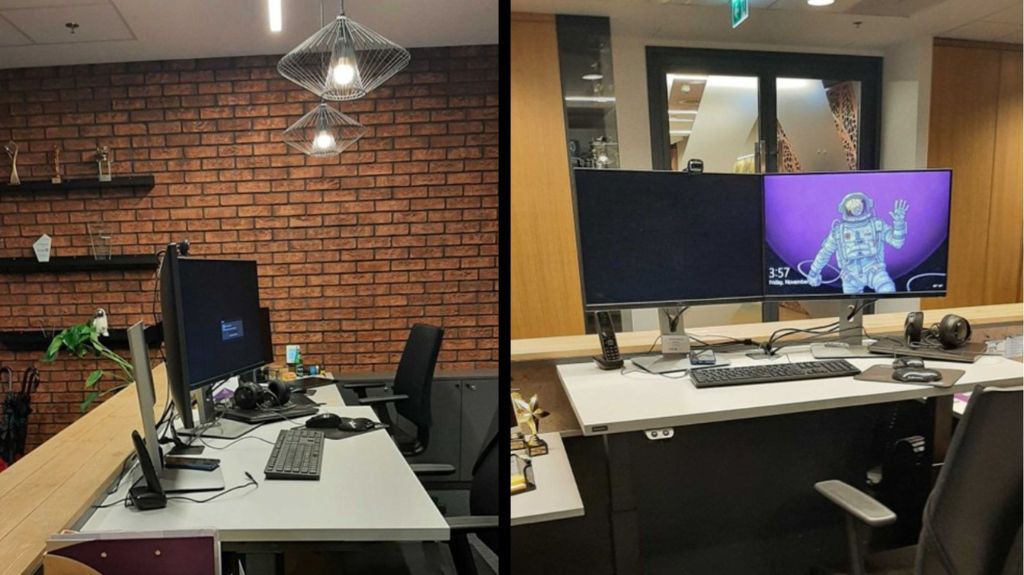In the evolving landscape of modern workplaces, adjustable desks have become a common and required standard in open spaces. Employees are increasingly valuing the flexibility and health benefits these desks offer. However, one intriguing trend is challenging traditional norms – the integration of adjustable desks in reception areas. In this blog, we explore the reasons behind this shift and the impact it can have on the overall workplace experience.

The Shift to Adjustable Desks in Open Spaces:
Adjustable desks have become a staple in open office environments, reflecting a commitment to employee well-being and productivity. The ability to switch between sitting and standing positions promotes better posture, reduces sedentary behaviour, and boosts energy levels. Companies are acknowledging the importance of providing a dynamic and adaptable workspace to support employee health and performance.
But what about reception areas?
The Changing Face of Reception Areas:
Traditionally, reception areas have been designed with a focus on aesthetics and creating a welcoming atmosphere. While these elements remain crucial, there is a growing realization that the reception area can be more than just a waiting space for visitors. It can also serve as an extension of the company’s commitment to employee well-being and innovation.

Reasons for Adjustable Desks at Reception:
1. Reflecting Company Values:
Integrating adjustable desks at the reception sends a powerful message about the company’s commitment to a flexible and health-conscious work environment. Furthermore, it showcases a forward-thinking approach that extends beyond the workspace and permeates every aspect of the organization.
2. Employee Engagement:
Reception areas are not just for visitors; they are also spaces where employees might briefly work or collaborate. Adjustable desks in these areas empower employees to choose a workspace that suits their needs, even if it’s just for a short duration. This fosters a sense of autonomy and engagement.
3. Demonstrating Inclusivity:
Inclusive workplace design involves considering the needs of all employees, including those who work in reception roles. Adjustable desks ensure that everyone, regardless of their job function, has access to ergonomic workspaces, promoting a more inclusive and supportive environment.
4. Adaptability to Various Tasks:
Reception areas are multifunctional spaces that can be used for a variety of tasks, from welcoming guests to ad-hoc meetings. Adjustable desks offer the flexibility needed for different activities, allowing the reception area to seamlessly adapt to changing requirements.
Related Read: Acoustics in the Office: Navigating the Noise
To Sum Up
As the workplace landscape continues to evolve, the inclusion of adjustable desks in reception areas represents a shift towards holistic well-being and adaptability. By extending the principles of flexible workspaces beyond the confines of dedicated work areas, companies can create a more dynamic and inclusive environment for both employees and visitors. The reception area, once merely a transient space, is now becoming an integral part of the overall workplace experience.
